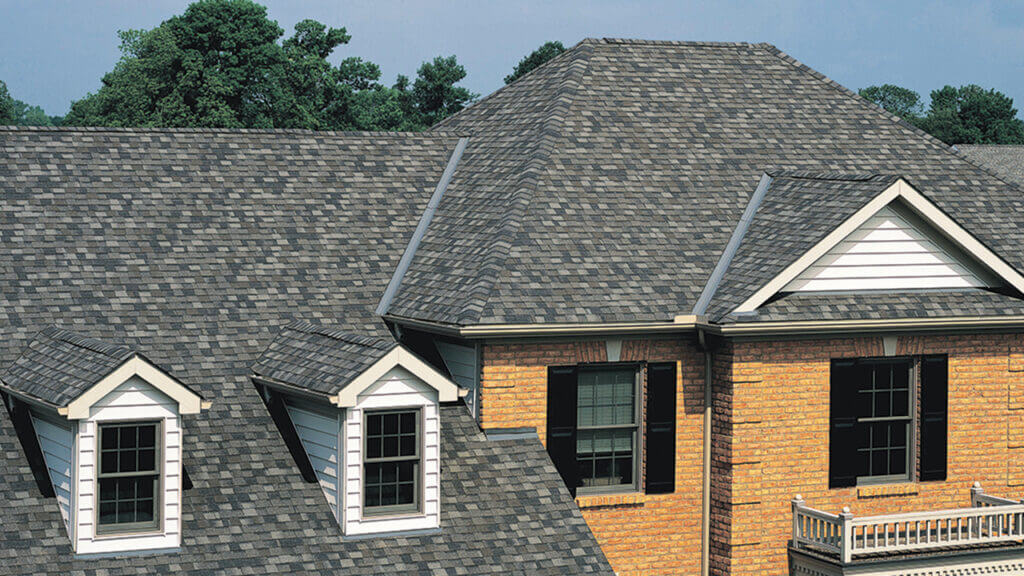Top Roofing Materials to Consider in NJ
Top Roofing Materials to Consider in NJ! Roofing materials come in various types to suit different needs and preferences. Asphalt shingles are the most common and budget-friendly option, offering durability and ease of installation. Metal roofs are gaining popularity for their longevity and energy efficiency. Wood shingles provide a natural and rustic look, but they require regular maintenance. Tile roofs are known for their durability and aesthetic appeal, while slate roofs offer unmatched durability and an elegant appearance. Consider factors like cost, longevity, maintenance, and aesthetics when choosing the right roofing material for your home.

Popular roofing materials used in NJ
Asphalt shingles are the most popular roofing material used in NJ due to their affordability and durability. They come in a variety of colors and styles to suit different architectural designs. Metal roofing is another popular choice in NJ for its longevity and energy efficiency. Tile roofing, although less common, offers a classic and elegant look that can last for decades. Each roofing material has its own advantages and considerations, so it’s essential to consult with a professional contractor to determine the best option for your home.
Factors to consider when choosing roofing materials
When choosing roofing materials, you should consider factors like your budget, the climate in your area, and the durability of the materials. Additionally, think about the architectural style of your home and how the roofing materials will complement it. Different types of roofing materials have varying costs, lifespans, and maintenance requirements, so it’s crucial to select one that aligns with your needs and preferences. Ultimately, the roofing material you pick will have a significant impact on the appearance and functionality of your home, so it’s essential to make an informed decision.
Roofing material durability and lifespan
Roofing materials can vary in durability and lifespan. Asphalt shingles, which are common in the US, typically last around 20 to 30 years. Metal roofs have a longer life expectancy, lasting up to 50 years or more. Wood shingles have a lifespan of around 30 years, but this can vary depending on the climate and maintenance. Slate roofing is known for its longevity, with some roofs lasting over 100 years. Consider the lifespan of the material when choosing a roofing option for your home.
Cost comparison of different roofing materials
Roofing materials vary in cost, and it’s essential to choose one that fits your budget and needs. Here’s a breakdown of the costs for different roofing materials:
- Asphalt shingles: The most affordable option, costing around $70 to $120 per square.
- Metal roofing: Costs range from $100 to $800 per square, depending on the type of metal used.
- Wood shingles: Priced at $400 to $700 per square, offering a natural look but requiring more maintenance.
- Clay tiles: Expensive, with costs averaging $700 to $1,000 per square, but they are durable and energy-efficient.
- Slate roofing: The most costly option at $1,000 to $2,000 per square, known for its longevity and aesthetic appeal.
Consider your budget and the durability of the material before making a decision.
Energy efficiency of various roofing materials
Energy efficiency varies among different roofing materials. Metal roofs are notably energy efficient as they reflect sunlight, keeping your home cooler in hot weather. Slate and tile roofs also have good insulation properties, which can help maintain your home’s temperature. On the other hand, asphalt shingles, while common and affordable, are less energy efficient compared to metal, slate, or tile options. Wood shakes offer natural insulation but may require more maintenance. The choice of roofing material affects not only the aesthetics of your home but also its energy efficiency, impacting your overall comfort and utility costs.
Environmental impact of roofing materials
Roofing materials can have a significant impact on the environment. Asphalt shingles, the most commonly used roofing material, contribute to landfill waste due to their shorter lifespan. Metal roofing, on the other hand, is highly recyclable and can often be made from recycled materials itself. Wood shingles are eco-friendly but can raise concerns about deforestation. Slate and tile roofing, while durable, require significant energy to manufacture and transport. Consider the environmental impact of the materials when choosing the right roof for your home.
Maintenance requirements for different roofing materials
Different types of roofing materials have varying maintenance requirements. Here are a few key points to consider:
- Asphalt Shingles:
- Regular inspections for damaged or missing shingles are important.
- Clean gutters and downspouts to prevent water damage.
- Consider a professional inspection every few years.
- Metal Roofing:
- Inspect for loose fasteners or any signs of corrosion.
- Keep debris off the roof to prevent damage.
- Check for proper sealing around vents and chimneys.
- Wood Shakes/Shingles:
- Regularly check for mold, mildew, or moss growth.
- Trim overhanging branches to prevent damage.
- Apply preservatives or treatments as recommended.
- Slate Roofing:
- Regularly check for cracked or missing tiles.
- Inspect flashing and replace if damaged.
- Avoid walking on the roof to prevent breakage.
- Tile Roofing:
- Inspect for cracked or chipped tiles.
- Keep the roof clear of debris to prevent clogging.
- Consider professional maintenance for complex repairs.
Each roofing material requires different levels of attention to maintain its durability and longevity.
Hiring a roofing contractor in NJ
When hiring a roofing contractor in NJ, it’s essential to do thorough research to find a reputable and experienced professional for the job. Here are some key points to consider:
- Look for licensed and insured contractors to ensure they meet industry standards and can provide coverage for any potential accidents or damages during the project.
- Ask for recommendations from friends, family, or neighbors who have had roofing work done recently. Personal referrals can help you find a trusted contractor.
- Get multiple quotes from different contractors to compare prices and services. This can help you find the best value for your money.
- Check online reviews and ratings of roofing contractors in your area to gauge customer satisfaction and the quality of their work.
- Make sure to ask about the specific roofing materials they work with and their experience with the type of roof you have. A contractor experienced with the materials you want to use will ensure a successful project.
- Finally, don’t hesitate to ask questions about the contractor’s process, timeline, and warranty options. Clear communication is key to a successful roofing project.
Tips from Herts Roofing for selecting the right roofing material
Before deciding on your roofing material, consider the climate in New Jersey. Asphalt shingles are popular due to their affordability and durability, ideal for the changing seasons in the area. Metal roofing is also gaining popularity for its longevity and energy efficiency, but it comes at a higher initial cost. Slate is a premium option due to its elegance and durability, perfect for historic or upscale homes. Wood shakes offer a rustic charm but require more maintenance. Lastly, clay tiles provide a distinctive look but are heavy and may need additional structural support.



